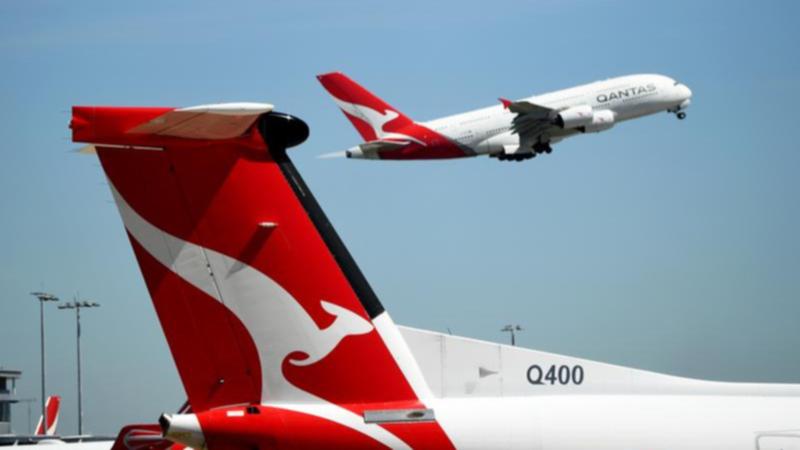Qantas flight delays: Flaming rocket debris from SpaceX pushes South Africa to Australia flights
Qantas has been forced to delay flights over the risk of fast-moving, fiery rocket debris re-entering Earth’s atmosphere.

Qantas has been forced to delay flights over the risk of fast-moving, fiery rocket debris re-entering Earth’s atmosphere.
Multiple flights flying from South Africa to Australia have been affected.
In recent weeks, both Elon Musk’s SpaceX and Amazon owner Jeff Bezos’s Blue Origin have pursued rocket launches.
Sign up to The Nightly's newsletters.
Get the first look at the digital newspaper, curated daily stories and breaking headlines delivered to your inbox.
By continuing you agree to our Terms and Privacy Policy.SpaceX’s launches include the Transporter-12 on January 14, Starlink missions on January 6, 8, 10 and 13, the NROL0153 mission on January 9 and the Thuraya 4 mission on January 3.
Mr Bezos’ debut New Glen Blue Origin satellite launch was cancelled on Monday, with the company seeking a reattempt on Thursday.
It is understood that the launches themselves have not caused delays to Qantas flights, but rather the likelihood of debris from returning rockets over an extensive area of the Indian Ocean.
“Over the past few weeks we‘ve had to delay several flights between Johannesburg and Sydney due to advice received from the US Government regarding the re-entry of SpaceX rockets over an extensive area of the Southern Indian Ocean,” Head of Qantas’ Operations Centre Ben Holland said.
“While we try to make any changes to our schedule in advance, the timing of recent launches has moved around at late notice which has meant we’ve had to delay some flights just prior to departure. Our teams notify customers of changes to their flight as soon as we know it will be impacted.
“Customers generally understand this is outside of airlines’ control and that we can’t fly in the area when the rocket re-entry is taking place.
“We’re in contact with SpaceX to see if they can refine the areas and time windows for the rocket re-entries to minimise future disruption to our passengers on the route.”
The Nightly understands that the coordinates for the location and timing of re-entry can change at short notice.
At the start of January, reports emerged of a 500kg ring-like object falling from the sky and landing in a village in Kenya.
Villagers were lucky to avoid being hit by the disk-shaped debris, which measured 2.5 meters wide and crashed back at a flaming temperature.
“The Agency wishes to clarify that the object, a metallic ring measuring approximately 2.5m in diameter and weighing about 500kg, is a fragment of a space object,” the Kenya Space Agency said in a statement after initial investigations.
